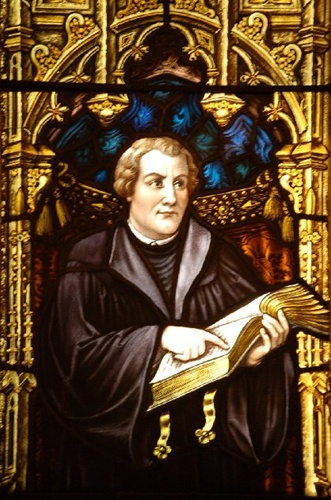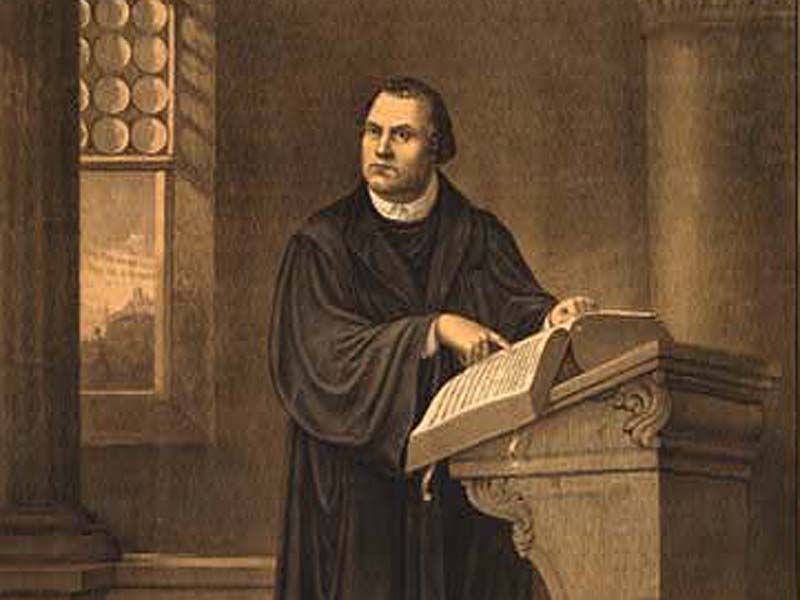 We – “we” representing the “abide in my word,” Spirit-regenerated, authentic disciples of Jesus (John 8:31)– can be quite the intolerant bunch … and that’s a noble descriptor for us. We should strive to keep that adjective. You could say that we inherited our intolerance from our Father.
We – “we” representing the “abide in my word,” Spirit-regenerated, authentic disciples of Jesus (John 8:31)– can be quite the intolerant bunch … and that’s a noble descriptor for us. We should strive to keep that adjective. You could say that we inherited our intolerance from our Father.
Jesus, the Son of God – the real one, not the one so often popularized in modern pulpits or from the spaces once occupied by pulpits – could be incredibly intolerant. Just ask the nearest Pharisee. Though He was and Is God and could get away with it, His was not a warm-fuzzy message. His was not a ministry spreading peace, love, joy, and rainbows indiscriminately across the world. He wasn’t known for flowery invitations to “join His family” or “let Me help you have your best life now.” Butterflies, sunshine, and giddiness weren’t spewed forth from His divine presence on the dusty paths of the real world.
(While peace, joy, love, etc. are, indeed, wonderful fruits of the Spirit for all believers – see Galatians 5:22-23 – in order to have them you first have to be “divided and conquered” by Jesus, so to speak. More on that shortly.)
The real Jesus – who, as immutable God, is the same Jesus today – was a polemical nightmare for the religious culture of His day, and a thoroughly ignoble fellow in the eyes of the rest of the culture. He was utterly polarizing … which is, in fact, exactly what He came to do. And He told us this clearly.
“I came to cast fire on the earth, and would that it were already kindled! I have a baptism to be baptized with, and how great is my distress until it is accomplished! Do you think that I have come to give peace on earth? No, I tell you, but rather division. For from now on in one house there will be five divided, three against two and two against three. They will be divided, father against son and son against father, mother against daughter and daughter against mother, mother-in-law against her daughter-in-law and daughter-in-law against mother-in-law.” Luke 12:49-53
Ouch. This doesn’t nearly seem like the “Jesus loves you and has a wonderful plan for your life” guy so popular in the evangelical world of pulpit-less dais. This isn’t the trendy, divine, bumper-sticker cool “Jesus is my best buddy” dude who is the topic of shelf after shelf of “what can He do for you?” books in the Christian bookstore. Indeed, whoever this Jesus is from Luke’s Gospel ain’t likely the Jesus of your nearest seeker-sensitive goat asylum. Hmm.
If you flip one Gospel back in your Bibles, Matthew records much the same content as Luke. But the Holy Spirit inspired the former tax collector turned gospel author to include another intolerance-invoking, battle-threatening quote from the Lord.
“Do not think that I have come to bring peace to the earth. I have not come to bring peace, but a sword. For I have come to set a man against his father, and a daughter against her mother, and a daughter-in-law against her mother-in-law. And a person’s enemies will be those of his own household. Whoever loves father or mother more than me is not worthy of me, and whoever loves son or daughter more than me is not worthy of me. And whoever does not take his cross and follow me is not worthy of me. Whoever finds his life will lose it, and whoever loses his life for my sake will find it.” Matthew 10:34-39
Huh? Not peace but a sword? Set me against my mom, my dad? Wha? And what’s this about finding my life in order to lose it? You mean I might die? Clearly the Jesus of the Gospels isn’t the Jesus of your average SBC Sunday morning motivational speech. Plus, back there in Luke, what’s this “deny me before men and I’ll deny you before my Father?” What’s that about?
If you’re a pastor preaching the wrong Jesus, whether from a pulpit or a hipster Hollywood-like stage, or if you’re a pew sitter hearing from such a “pastor,” – unless THIS Jesus and His Gospel is proclaimed, you are denying Him before men. Judgment will come for this. Serious judgment. Eternal judgment. The Lord, our Lord, didn’t use click-bait language to gain attention. He didn’t utter such things for dramatic effect.
So if your church employs gimmicks, preaching another Jesus that is posited to be THE Jesus, beware. If, for instance, your church is the sort to ever employ the use of, say, a fog machine to enhance the worship “experience,” you can almost be hell-bound certain that you’ve got a different Jesus. Jesus didn’t need fog machines and theatrics because the Truth – His Truth – came unvarnished, unadorned, and with raw reality.
Misty clouds of fog-induced religious ambiance can easily cloud His authentic truth, persuading people to choose the “other” Jesus and “other Gospel” being proclaimed through the theatrics. Though that “other” foggy-worship-breakdown “Jesus” may make you feel all ooey-gooey, like you’re the very reason God even gets up every morning, eager to make your day stress-free, your life fulfilled, and your dreams come true, such false proclamations and soothing, manipulated environments won’t deter the real Jesus from His real purpose. And often we forget the premise of our Lord’s ministry.
Jesus came to divide.
It’s a sword he bears, not a unity statement, not a copy of his latest book teaching you how to “do unto yourself what you’d like others – and God – to do unto you.” He has come to divide. He has not come to help you achieve your dreams, make you healthy, or teach you divine secrets to get all you can get or be all you can be. He didn’t come to compel you to solve the social ills of the world, to leave the world a better place than you found it, or, indeed, to pursue unity with the world of false teachers, false doctrines, and infernal darkness, particularly in the self-monikered “church.” He came to divide with a Gospel that is utterly, intentionally, purposefully, and Divinely divisive.
His apostle, Paul, expounds to the Thessalonians a view of the Lord’s dividing work, one that both negates the pulpit-popular “therapeutic” gospel by acknowledging the reality of suffering and emphasizes the flaming decisiveness with which the Lord will come, dividing as He will by His Gospel.
“This is evidence of the righteous judgment of God, that you may be considered worthy of the kingdom of God, for which you are also suffering— since indeed God considers it just to repay with affliction those who afflict you, and to grant relief to you who are afflicted as well as to us, when the Lord Jesus is revealed from heaven with his mighty angels in flaming fire, inflicting vengeance on those who do not know God and on those who do not obey the gospel of our Lord Jesus.” (2 Thessalonians 1:5-12)
So what did He come to divide, this polarizing, contentious, and intolerant Jesus of the Gospels? He came to divide Light from darkness, a task that will ultimately be realized when He puts goats on the left, sheep on the right in final, full, eternal, and altogether righteous judgment. (Matthew 25: 31-46) The power that He uses to do the dividing? The Gospel.
For I am not ashamed of the gospel, for it is the power of God for salvation to everyone who believes, to the Jew first and also to the Greek. Romans 1:16
Providentially enough, it was just one verse further into Paul’s letter to the Romans that was divinely empowered to draw one man in particular from the darkness into the Light … a man who would be used mightily by the Lord in His continuing work of dividing.
For in it the righteousness of God is revealed from faith for faith, as it is written, “The righteous shall live by faith.” Romans 1:17
 For Martin Luther, this was the verse through which God exercised His divine power to save. Upon the light of justification by faith being providentially shone in his Spirit-enabled, apprehending mind, Luther would say, “When I discovered that, I was born again of the Holy Ghost. And the door of paradise swung open, and I walked through.” Martin Luther, like all others regenerated by the Holy Spirit, got saved because of Jesus’ work of Gospel division.
For Martin Luther, this was the verse through which God exercised His divine power to save. Upon the light of justification by faith being providentially shone in his Spirit-enabled, apprehending mind, Luther would say, “When I discovered that, I was born again of the Holy Ghost. And the door of paradise swung open, and I walked through.” Martin Luther, like all others regenerated by the Holy Spirit, got saved because of Jesus’ work of Gospel division.
The 95 Theses of Luther may have served as the tiny spark that would become the conflagration of the Reformation, but it was his Holy Spirit illuminated apprehension of the Gospel, of justification by faith, that would be the divine doctrine that fanned the flames and which would propel Luther into even greater controversy than his protest of indulgences had brought. Luther would become the prime polemicist of the Reformation era, defending the Jesus who saved him and the faith which had been delivered to him.
Through his encounters with the man-made invention of the Roman Catholic church, Luther knew first-hand how offensive the real Jesus and His authentic truth could be, even to the religious elite of his day. The actual Jesus of Scripture would, of course, not likely be found, even today, listed on your typical church’s pulpit supply list. His harsh message of divine truth is just far too contentious for the caustic-avoiding, tolerance embracing modern church. The “all we need is love” false gospel does a much better job at making church members. Which is no surprise. While even Jesus could draw a crowd of thousands, when the message got down to the divine, divisive nitty-gritty and the miracle-meal ended, our Lord was left uncrowded, asking His twelve followers a stunning, intentionally divisive question.
And he said, “This is why I told you that no one can come to me unless it is granted him by the Father.” After this many of his disciples turned back and no longer walked with him. So Jesus said to the twelve, “Do you want to go away as well?” Simon Peter answered him, “Lord, to whom shall we go? You have the words of eternal life, and we have believed, and have come to know, that you are the Holy One of God.” Jesus answered them, “Did I not choose you, the twelve? And yet one of you is a devil.” He spoke of Judas the son of Simon Iscariot, for he, one of the twelve, was going to betray him. (John 6:65-71)
“Do you want to go away as well?” Divine division was going on. And Jesus was (is) the great divider. “Did I not choose you?” Luther, of course, was chosen. He did not want to go away. Which is precisely how it is for any of us who have been given the gift of faith, able to understand something of the glory and grace of Christ. We do not want to go back.
For Luther, what started out as an intramural squabble over papal fund-raising techniques for a new basilica, would be used by the Lord for a much greater purpose – the division of the church that we call the Reformation. Luther would become the preeminent 16th-century reformer who started it all and who would vehemently defend the Gospel, the doctrines, and the Scriptures against the apostasy of the overbearing, ungodly Roman Catholic church. Luther epically obeyed Jude in “contending for the faith.” (Jude 3)
But Luther was often no linguistic choirboy. His missives could be filled with venom against the hierarchy of Rome’s apostasy who rose against him. Like Jesus, Luther would likely not be invited to stand in the pulpits of many modern churches. Were he around today, Luther’s language would surely find him censured on Facebook and banned from your typical Sunday School class. Luther could be crass, sometimes vulgar, perpetually intolerant, and, to those on the receiving end of his offensively direct dispatches, downright unlikable. Even contemporary reforming compatriots found Luther somewhat “over the edge.”
The 16th-century Swiss Reformer Heinrich Bullinger gives us his comment about Luther: “Alas, it is as clear as daylight and undeniable that no one has ever written more vulgarly, more coarsely, more unbecomingly, in matters of faith, and Christian modesty, and in all serious matters, than Luther. There are writings by Luther so muddy, so swinish, so vulgar and coarse, which would not be excused in a shepherd of pigs rather than in a shepherd of souls.”
Luther, though, provides an apologetic glimpse of sorts of his paper-bound linguistic insults against foes: “Anger refreshes all my blood, sharpens my mind, and drives away temptations . . . I was born to war with fanatics and devils. Thus my books are very stormy and bellicose.” Luther would not deny his proclivity for castigation:
“I cannot deny that I am more vehement than I should be . . . But they assail me and God’s Word so atrociously and criminally that . . . these monsters are carrying me beyond the bounds of moderation.”
Consider some of Luther’s scathing retorts and scurrilous scoldings:
“But whoever wrote this bull, he is Antichrist.”
“I call upon you to renounce your diabolical blasphemy and audacious impiety, and, if you will not, we shall all hold your seat as possessed and oppressed by Satan, the damned seat of Antichrist; in the name of Jesus Christ, whom you persecute.”
“We should take him—the pope, the cardinals, and whatever riffraff belongs to His Idolatrous and Papal Holiness—and, as blasphemers, tear out their tongues from the back, and nail them on the gallows.”
In responding in discourse against Jacobus Latomus, a theologian to the Inquisition and determined opponent, Luther gave a lengthier response to those who found his insult-filled diatribes unbecoming:
“He [Latomus] says that I lack the evangelical modesty which I enjoin, and that this is especially true of the book in which I replied to the sophists of Louvain when they condemned my teachings. Now I have never insisted that anyone consider me modest or holy, but only that everyone recognize what the gospel is. If they do this, I give anyone freedom to attack my life to his heart’s content. My boast is that I have injured no one’s life or reputation, but only sharply reproached, as godless and sacrilegious, those assertions, inventions, and doctrines which are against the Word of God. I do not apologize for this, for I have good precedents. John the Baptist and Christ after him called the Pharisees the “offspring of vipers.” So excessive and outrageous was this abuse of such learned, holy, powerful, and honored men that they said in reply that He had a demon . If in this instance Latomus had been judge, I wonder what the verdict would have been! Elsewhere Christ calls them “blind”, “crooked,” “liars,” “sons of the devil”. Good God, even Paul lacked evangelical modesty when he anathematized the teachers of the Galatians who were, I suppose, great men. Others he calls “dogs”, “empty talkers” “deceivers” . Further, he accused to his face the magician Elymas with being a “son of the devil, full of all deceit and villainy.”
Luther could whip out, seemingly effortlessly,  vituperative zingers at those opposing him, those who, in his mind – and most often, rightly so – weren’t really opposing him, but the very truth of the Word of God.
vituperative zingers at those opposing him, those who, in his mind – and most often, rightly so – weren’t really opposing him, but the very truth of the Word of God.
“You are more stupid than a block of wood!”
“Your writings and head are disordered and mixed up, so that it is exceedingly annoying to read and difficult to remember what you write.”
“May God punish you, I say, you shameless, barefaced liar, devil’s mouthpiece, who dares to spit out, before God, before all the angels, before the dear sun, before all the world, your devil’s filth.”
“You vulgar boor, blockhead, and lout, you ass to cap all asses, screaming your heehaws.”
“You are a crude ass, and an ass you will remain!”
“Even if the Antichrist appears, what greater evil can he do than what you have done and do daily?”
“You are desperate, thorough arch-rascals, murderers, traitors, liars, the very scum of all the most evil people on earth. You are full of all the worst devils in hell – full, full, and so full that you can do nothing but vomit, throw, and blow out devils!”
“It is presumptuous for people who are as ignorant as you are not to take up the work of a herdsman.”
“You are the prostitute of heretics!”
“Even if the Antichrist appears, what greater evil can he do than what you have done and do daily?”
Whoa! Evidently, there wasn’t a very effective tone-police business in the 16th century.
Given the overbearing self-righteousness of the apostates enthroned by the River Tiber, Luther’s foes were less interested in the actual Truth than he. Their ambition was to silence this presumptuous, upstart monk as he threatened, with God’s Word, their supposed assumption to His earthly throne. Luther, of course, called them out for what they were, “liars and villains.”
“It seems I must have liars and villains for opponents. I am not worthy in the sight of God that a godly and honorable person should discuss these matters with me in a Christian way. This is my greatest lament.”
While some of his scathing rebukes could be quite pedestrian in their use of a more common, even vulgar, vernacular – including the occasional scatological, either animal or human reference – it must be remembered that Luther was attacking those who presented themselves, and their anti-biblical, diabolical teaching, in the name of God. The Pope, as he does to this day, presumes to present himself as the “vicar of Christ,” the divine representative -and temporal voice – of God. So adamant was Luther to polemicize in defense of the Gospel and Scripture, he seemed to find no language too low for his usage in defending Truth and attacking its diabolically-influenced detractors.
The Lord divinely divided Luther, setting him apart for His work in the Reformation and we remain the beneficiaries of Luther’s faith and work. Like every believer must do, Luther contended for the faith against those who claimed to represent that faith, but did so in disregard of Biblical Truth. Luther’s polemics were pointed at the pretenders, just as ours today must be, for darkness in the world is a certainty, but, within the church, “certain people have crept in who were long ago designated for destruction.” (Jude 4) There are “liars and villains” no less prevalent today, proclaiming false gospels and false saviors through fog-banks of manipulative deceit.
Though we will hopefully dismiss the use of the crasser language of Luther in our polemics, we must never forsake the holy boldness of Luther in standing firm for the faith (1 Corinthians 16:13). Indeed, when attacks come against us for our faithful stands – stands that, to the unregenerate onlooker, will appear unloving, unity-threatening, and grossly intolerant – may we be able to share Luther’s sweet, reliant communion of prayer with the Lord as he did the night before His infamous Diet of Worms:
“Almighty, eternal God, what a contemptible thing this world is! Yet how it causes men to gape and stare at it! How small and slight is the trust of men in God. How frail and sensitive is the flesh of men, and the devil so powerful and active through his apostles and the ‘wise’ of the world! How soon men become disheartened and hurry on, running the common cause, the broad way to hell, where the godless belong! Their gazes fixed on what is splendid and powerful, great, and mighty! If I too were to turn my eyes to such things, I would be undone! The verdict would already have been passed against me, and the bell that is to toll my doom would already have been cast.
O God, O God, O Thou my God, my God, help me against the reason and wisdom of all the world! Do this! Thou must do it, Thou alone, for this cause is not mine, but Thine! For myself, I have no business here with these great lords of the world! Indeed, I too desire to enjoy days of peace and quiet and to be undisturbed. But Thine, O Lord, is this cause, and it is righteous and of eternal importance! Stand by me, Thou faithful eternal God. I rely on no man! Futile and vain is all; lame and halting all that is carnal and smacks of the flesh. God, O God, dost Thou not hear me, my God? Art Thou dead? Nay, Thou canst not die! Thou art merely hiding Thyself. Hast Thou chosen me for this task? I ask Thee!
I am sure Thou hast. Were so, let it be, then. Thy will be done. For never in my life did I intend to oppose such great lords. Never had I resolved to do this! O God, stand by me in the Name of Thy dear Son, Jesus Christ, Who shall be my protector and defender, yea, my mighty fortress, through the might and the strengthening of Thy Holy Spirit. Lord, where tarriest Thou? O Thou my God, where art Thou? Come, O come! I am ready to lay down my life for this cause, meek as a lamb, for the cause is righteous and it is Thine. I will not separate myself from Thee forever. Be that decision made, in Thy Name!
The world must leave my conscience unconquered even though it were full of devils and though my body, the work and creation of Thy hands, should be utterly ruined! But Thy Word and Spirit are a good compensation to me, and after all, only the body is concerned. The soul is Thine, and belongs to Thee, and willingly it will remain eternally. Amen. God help me. Amen.”
[Contributed by Bud Ahlheim]
(If you’re in need of a Reformer’s rebuke, you might find the Luther Insult Generator a useful resource.! LOL)












